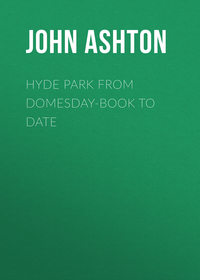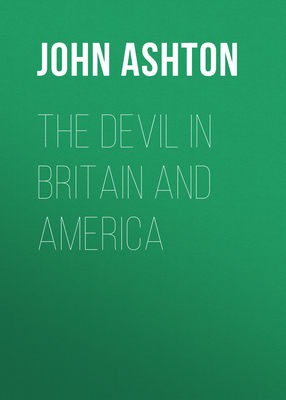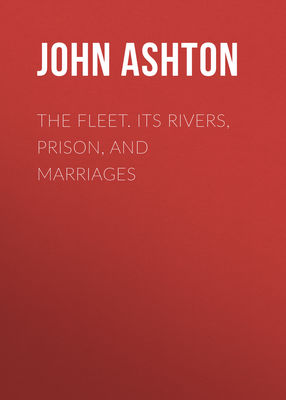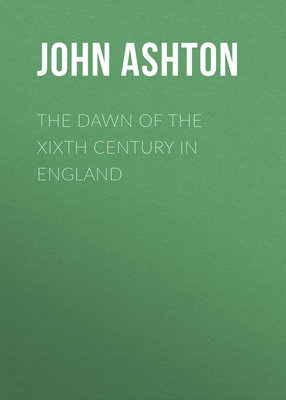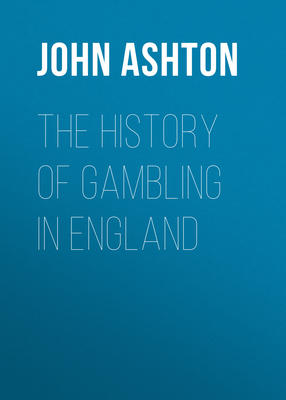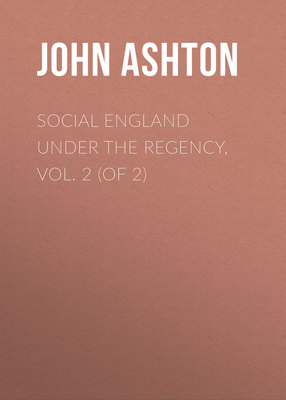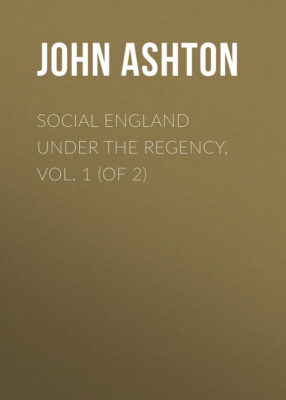Kitabı oku: «Hyde Park from Domesday-book to Date», sayfa 10
From this time there has been no great military display in Hyde Park: it is unsuitable for it, and the grass is quite enough spoilt by the mobs of fanatic, idle, mischievous, or seditious persons who there assemble at oft-recurring intervals, and destroy the peace and comfort of those, who are the vast majority, who wish to enjoy the verdant pleasures of the Park. Besides, railways have multiplied, and the facilities of holding real reviews and military manœuvres in places where there is far more room, have so increased, that it is probable that we have seen the last great military gathering in the Park. The Foot Guards still assemble here occasionally for exercise, and in the autumn it is a favourite spot for the annual inspection of Volunteer regiments, but then these are inspected singly, and without fuss.
It now becomes my very disagreeable task to chronicle the scenes of disorder which have taken place in the Park, and which, owing to the growth of democratic feeling, have only occurred this century, our ancestors being wisely content to use the Park as a place of sensible recreation, or at the very worst, as one for settling private differences quietly, and without observation. The change begun in 1821 at the removal of the corpse of Queen Caroline, wife of George IV., but this was unpremeditated, and need not have occurred. This took place on August 14.
It is not my place to comment on the marital relations of the King and Queen, or of the behaviour of the latter, who stood her trial and was acquitted of the charges brought against her. Suffice it to say that the popular voice was in her favour, and, on the occasion of the removal of her body to Brunswick (her final resting-place), the natural and most direct route lay through the City. Those in authority knew what an ovation the corpse would receive if it went that way, and sought to take a different route. From Brandenburgh House, where the Queen died, through Hammersmith, to turn round by Kensington Gravel Pits, near the church, into the Uxbridge Road, to Bayswater: thence to Tyburn turnpike, down the Edgware Road, along the New Road to Islington, down the City Road, Old Street, Mile End, to Romford, etc.
But this the mob would not allow: the corpse should go through the City, and The Morning Chronicle of Aug. 15 gives the following account of how the procession fared.
“It was at eight o’clock in the morning, when the procession reached Kensington Church, that public opinion made its first indication; the whole procession was suspended. The multitude, proceeding from the eastward, here assumed a determined attitude. The first object was the seizure of an ammunition-waggon, with an escort of the Foot Guards. The soldiers endeavoured to maintain their charge, but the pressure of the crowd rendered their efforts impotent; the ammunition-waggon was turned into an engine of defensive war. The people were determined not to let the Royal remains be smuggled through a bye-lane. Waggons, carts, hackney-coaches, with the lynchpins taken out, were, almost by a talismanic agency, converted into a barrier of obstruction, calculated to prevent the progress to the New Road. After two hours delay, an express having been, it was understood, sent to the Earl of Liverpool, a detachment of the Life Guards, with Sir Robert Baker at their head, at full gallop, with sabres drawn, reached the High Street, Kensington, at twenty-two minutes past 10. He, with the military officers, reconnoitred the position taken by the people, and they at once perceived that the passage by Kensington Gravel-pits was impossible. When it was announced that the Royal cortège was to proceed along the Hyde Park Road, the interest of the public feeling was then strenuously directed to prevent its being directed into Hyde Park. The cry was for ‘The City, the City, the City,’ etc. At the request of Mr. Hume, the ammunition-waggon, which was the first seizure, was released by the people.
“The Park now presented the spectacle of an immense multitude. As far as the eye could reach, the space was covered with umbrellas. Some of the Life Guards rode to and fro, which seemed to excite much displeasure among the crowd, which was testified by hissings and hootings. When the head of the procession reached Cumberland Gate, about half-past 12, a stoppage took place; the people crowded and wedged together at the end of Oxford Street and the gates were not very willing nor very able to make way. We saw an officer ride down Park Lane, for the purpose, as it appeared, of bringing up another body of soldiers. A troop of Horse Guards then appeared, and galloped at full speed towards the gate.
“As the Horse Guards advanced towards Cumberland Gate the people crowded forward, and manifested an intention of preventing the hearse from passing through. The Guards, who were not only hissed, but pelted with mud and stones, attempted to proceed, but the crowd rushed forward and closed one side of the gate. The soldiers then charged upon the people, and the gate was forced open, but was again closed for a few moments. The soldiers having at length got through, were again pelted with mud and stones. Some persons attempted to block up the entrance to the Edgware Road, and posts, stones, etc., were torn up for that purpose. The Guards now charged a second time, and many severe wounds were inflicted. The Riot Act having (as we understand) been read by Sir R. Baker, the Horse Guards fired upon the people, and did serious injury. One of the sufferers is a man named Honey, a cabinet-maker, Compton St., Soho; he lies at the General Wetherell, Oxford Street, and has just been recognized by his brother. Another lies dead at Mr. Lightfoot’s, surgeon, Oxford Street. An unfortunate man who had been carried to the hospital, shortly afterwards died of his wounds. The firing, single shots, lasted four or five minutes, during which period it is impossible to describe the distress and confusion which prevailed; men and women were seen running in all directions, endeavouring to avoid the attacks of the soldiers, who brandished their swords, and pushed forward with the most determined boldness and intrepidity.
“We must here observe, that the Oxford Blues took no part whatever in this attack upon the people – their conduct throughout was highly praiseworthy. The obstructions to the entrance of the Edgware Road having been at length removed, the procession moved forward, but not quietly. The people continued throwing mud, and calling out ‘Piccadilly Butchers,’ and ‘The Blues for ever.’ ”
The people had their way. When the procession came to Tottenham Court Road, it was found that the New Road, Hampstead Road, and all the streets near, were so barricaded, that it was utterly impossible to proceed. It, therefore, turned down Tottenham Court Road, Bloomsbury High Street, High Holborn, Drury Lane, to the Strand. The Lord Mayor and one of the Sheriffs met it at the foot of Ludgate Hill, and accompanied it to the City boundary, in Aldgate. After turning down Tottenham Court Road, and it was certain that the popular will would be carried out, all went with the utmost decorum, and the passage of the body through the City was quiet and reverential.
CHAPTER XVI
Commencement of the reign of King Mob – Sunday Trading Bill, 1855 – Riots – Withdrawal of the Bill – Meetings about high price of food, 1855 – Rough play and window smashing.
This riot was accidental and unpremeditated. We now come to the reign of King [Greek: dêmos] in the Park, and it began on Sunday, July 1, 1855, in a demonstration against Lord Robert Grosvenor’s “Sunday Trading Bill” – the following account of which is abridged from The Times of July 2, 1855.
“Three o’clock was the advertised time for the proceedings to begin, and, notwithstanding that Sir Richard Mayne50 had had placards posted in the metropolis, announcing that the meeting would not be allowed to take place, long before that hour Constitution Hill, and the walks in St. James’s Park, were literally crowded by thousands, who were all wending their way towards Hyde Park. By half-past two o’clock there must have been nearly 150,000 men, women and children present. Many, judging from their dress, were of the respectable class. The proceedings began by the usual stump oratory, which continued for some time, until a cry of ‘the Police’ being raised put an abrupt termination to it.
“About 30 or 40 policemen made their way towards the man, but he had decamped, and a great number of men, finding that he was not allowed to address them, commenced hissing and hooting at the police, and some cried out, ‘Down with the Crushers!’ This gave rise to an extraordinary scene of confusion. Some of the men commenced knocking the constables’ hats off, and, to protect themselves, the men were obliged to use their truncheons with considerable force. Several carriages containing company came in sight, when every one present commenced crying out, ‘Go to church,’ and ‘Take your horses out.’ The police, finding that this frightened the horses, commenced seizing those who uttered the expressions. In return, the crowd laid hold of the officers, and endeavoured to rescue their prisoners. Of course, this could not be allowed, and the police were compelled to use their staves vigorously, and with marked effect on the mob – but they kept their prisoners, and sent them off to the police-station in cabs. One man, to escape capture, plunged into the Serpentine, but had not got more than half across, when he seemed likely to sink. He was rescued by an officer of the Royal Humane Society, and duly was enrolled in the ranks of the captured. The police were heavily reinforced, and the riot was put down – but not before 104 rioters were lodged in the police cells, who were in time dealt with by the magistrate.
“On the next day, Lord Robert Grosvenor withdrew the objectionable Bill; but this did not satisfy the mob, who met again in Hyde Park on the following Sunday, 8th July, but, finding no excitement there, they went into Belgravia, and took to the pleasant pastime of window smashing, the houses which suffered most being those of the Earl of Sefton, Duke of Marlborough, Lady Somers, Count Kielmansegge, and the Archbishop of York. Lord Palmerston, who was then Prime Minister, and Lord Brougham, both had a narrow escape from stoning.”
This making Hyde Park a Cave of Adullam, was too great a novelty to be let rest; so we find, that it being war time, and provisions somewhat high, a meeting must needs be held to talk about the high price of food – and one took place on Sunday, 14th October, 1855. The Times of next day says: —
“For many days past large placards have been posted on the hoardings about London, deploring the present high price of bread, setting forth possible causes and certain remedies for the evil, and calling on the working men of the metropolis to meet in ‘Our Park’ on Sunday next (yesterday) for the purpose of giving expression to their feelings on the subject, and taking measures for bringing about a change in so sad a state of affairs. Accordingly, yesterday, about 2 o’clock, great numbers of persons were found wending their way towards the Park, where already had assembled many, not of the best orders of society, and of those itinerant gentry who ply their various callings on such occasions.
“Until 3 o’clock nothing of an unusual character occurred; but, shortly after the hour named, a movement towards the centre of the Park gave indication of something exciting, and a rush from all parts to the point of attraction brought together, of a sudden, a crowd that continually increased, until, at last, as many as 5000 persons must have assembled together, the majority of them being of respectable appearance. All the available men of the police force, and those who would have been, otherwise, off duty for the day, were disposed about the Park, in case their services should be required, but not the slightest interference in the subsequent proceedings took place.
“Presently, two immense rings were formed, and a man of serious aspect, with a profusion of hair about his face, made his way to one of the spaces thus made, and addressed the people. He said he was a hard-working man; that it was no vain desire for popularity that had induced him to leave his large family on the Sabbath for the purpose of meeting his fellows in Hyde Park; it was because he believed he had it in his power to help his fellow-countrymen to a right understanding of the purpose for which they had assembled together. After two of the most plenteous harvests that ever blessed the earth, bread was at famine prices. The war was set forth as the cause of this. There was plenty of corn in Turkey, which could be imported at 20s. a quarter, and yet Russian corn at 73s. a quarter was permitted to be brought over. The speaker, who was said to be an eloquent carpenter, had proceeded in this strain for upwards of an hour, when a counter-agitation seemed to be rising within twenty yards of the crowd which had gathered around him.
“A baker by trade was endeavouring to defend the corn-factors and landed proprietors, against whom his opponent had been inveighing; but the mob was in no humour to listen to the ‘other side,’ and a cry of ‘Out with him’ having been raised, the baker was pushed and dragged, and carried off in the direction of the Marble Arch. Two or three gentlemen interfered to defend the unfortunate man from the usage to which his boldness had subjected him; but he did not escape even then, and he would, undoubtedly, have received some rough treatment, had not a body of police appeared to the rescue. The inspector on duty at that spot evidently saw an admirable chance of giving a favourable turn to the events of the day. Eight officers, surrounding the baker, trotted off with him at a smart pace, followed by an immense number of persons, among whom were those who appeared to be most bent on mischief; they ran on, following the baker and his guard towards Apsley House and outside the Park. Returning to the carpenter, whose audience had been considerably thinned, he was found to be still holding forth; he continued to speak and to declaim against ‘the powers that be,’ until dusk, when he brought his harangue to a close.”
On the next Sunday, Oct. 21st, another meeting took place in the Park, upon the same subject, when the same speaker congratulated his audience on again exercising their now recognized privilege of meeting in “their own Park.” Of course he wandered from his subject, and became violently political. “He also propounded a plan of attaching the police to the cause of the working classes, by appealing to them, as men and brothers, through the intervention of tracts, adding that every citizen should be a soldier, and every man a voter. He was winding up in a magniloquent peroration, when a diversion in his immediate neighbourhood attracted the attention of the greater portion of his audience towards a new object. This was an unfortunate young man dressed in livery, apparently an officer’s servant, whom a great crowd was chasing, hooting, and pelting with turf. What umbrage he had given them – whether it was his connection with a wealthy or an aristocratic master, as indicated by his dress, or what else, it was difficult to ascertain. Some said he had been circulating a tract among the crowd which was obnoxious to them; others, that he was the servant of a nobleman equally obnoxious; but be that as it may, he was followed and pelted without mercy for a considerable distance. Being hotly pressed, he took refuge behind a tree, but this availed him little, and he started afresh, but only to be subjected to renewed ill-treatment. At last he took to his heels, contrived to elude or outstrip his tormentors, and to get beyond their reach.
“This incident over, the idler and more wanton part of the crowd amused themselves by throwing tufts of grass and other missiles at a number of police who had returned in front of the magazine guard-house, from protecting the unfortunate footman. This continued for some little time, and, at one time, looked threatening; but the policemen, who showed the greatest forbearance under the annoyance, contrived to separate, and the delinquents gradually became tired of the fun. Proceeding, after this, in the direction of the Marble Arch, to a spot where a crowd had collected, we found another orator holding forth in a style of rude eloquence, which, both in its matter and manner, was not without its attractions to many. He was relating the history of the appropriation of land in this country, and, at the point when we came within reach of his voice, he was telling how William the Conqueror parcelled out the English territory among his followers. Another philanthropist, with a brown-paper parcel under his arm, and somewhat advanced in life, was advocating, in another part of the Park, the system of Communism as a panacea for the high price of food and almost every other evil.”
Of the next meeting The Times of October 29, 1855, says, “Yesterday (Sunday) another unseemly assemblage of persons congregated in Hyde Park, partly under the auspices, and at the bidding of a small knot of individuals who, under the pretext of agitating for cheap bread, really seek to disseminate political doctrines, which the people of this country, including almost every class of them, have long since, and over and over again, refused to endorse, and who, for the last few weeks, have converted a place to which thousands of the inhabitants of this metropolis, of all ranks, were accustomed to resort for agreeable and healthy recreation, into the rendezvous of a mob. It is however, satisfactory to be able to add, on the assurance of those persons themselves, given yesterday, and in the course of the week, that this is to be the last of the gatherings, as far as they are concerned.” The mob wound up their day’s amusement by smashing windows at the West End, the value of the glass broken in Curzon Street alone being over £150.
Of course, the promise that the meeting of 28th October was to be the last was not kept, and another, and, if possible, more disgraceful riot took place on Sunday, November 4. Commenting upon it, The Times of next day observes: —
“Yesterday, from about 3 o’clock in the afternoon, till about nightfall, Hyde Park was the scene of one continual riot, of a disgraceful and intolerable description; and not the less so, perhaps, because it was not accompanied by any serious injury to property, nor any loss of life – results with which the mind is apt to connect great popular tumults – though in many instances it was attended with the commission of personal violence on a number of unoffending persons. It is a naked, incontrovertible fact, let it bear what interpretation it may, and with whomsoever the blame may rest, that a place set apart for the recreation of the people of all ranks and classes, without distinction, was, yesterday (a Sunday), almost wholly surrendered to a lawless, ruffianly mob, without anything like an organized attempt to suppress the tumult to which they gave themselves up, or to prevent the violence they were ever ready to inflict, although some creditable, but isolated, and not always successful efforts were certainly made by individual members of the police force, at the inevitable risk of great violence to themselves, to secure the most conspicuous of the ringleaders.
“And who were the persons, and what was their character, by whom this reckless and unprovoked attack was made to disturb the public peace? No section of the middle – still less of the upper class of inhabitants; none of the community of artisans; nobody having a just, or well-defined grievance to complain of – none even, perhaps, of the parties by whom these Sunday gatherings were originally convened; but a pack of contemptible boys and lads, including a large proportion of vagabonds and ruffians of all kinds and degrees, with which this metropolis abounds, some thousands strong in the aggregate, who had collected there for no other purpose than that of the most wanton mischief, and from no other but the most insensate motives.”
There was the same rioting next Sunday (11th November), only this time some arrests were made. One man got a month’s imprisonment for obstructing the police, another two months for assaulting two policemen, a boy had fourteen days for disorderly conduct, and a man was fined £3 1s. for distributing handbills.
Sunday, 18th November, was the last of these series of riots, and on this occasion there were plenty of police – some 700 or 800, and they seem to have been better handled than usual. “Towards 4 o’clock a rush was made in the direction of the bridge at the east end of the Serpentine, and the crowd followed in considerable numbers, as did also a portion of the police. Crossing the bridge at a run, the crowd – chiefly boys – made for the Albert Gate, for a purpose, probably, which had better be imagined than stated in terms; but there they were received by two mounted inspectors and a company of policemen on foot, who guarded the outlet, and effectually prevented their escaping into the adjacent streets. The youngsters, thus foiled, stood for some time in a body in front of the residence of the French ambassador, and eventually dispersed, some returning into the Park. This incident had the effect of thinning the crowd considerably in the middle of the enclosure, but night had set in before those who lingered there could be persuaded to depart. Captain Labalmondière kept moving his patrols through and through the crowd in every direction, without any very perceptible effect in lessening their number. At length the police completely tired them down, and the people slowly retreated into the streets, without, so far as we could ascertain, doing any damage.”
